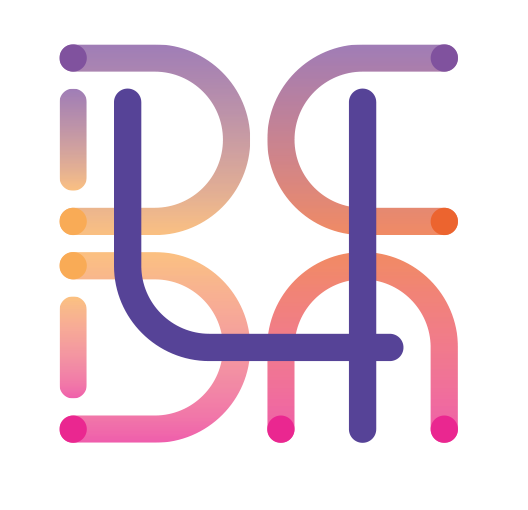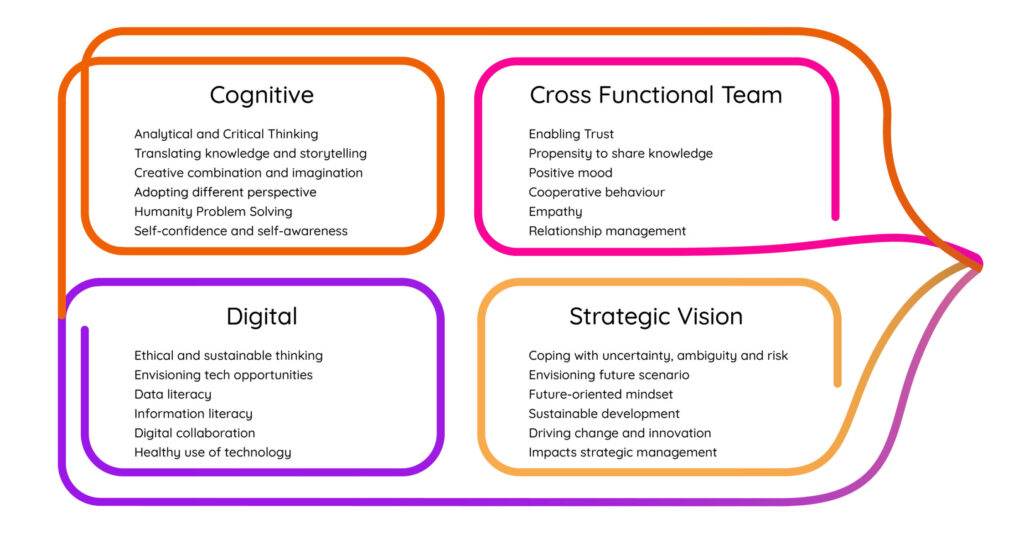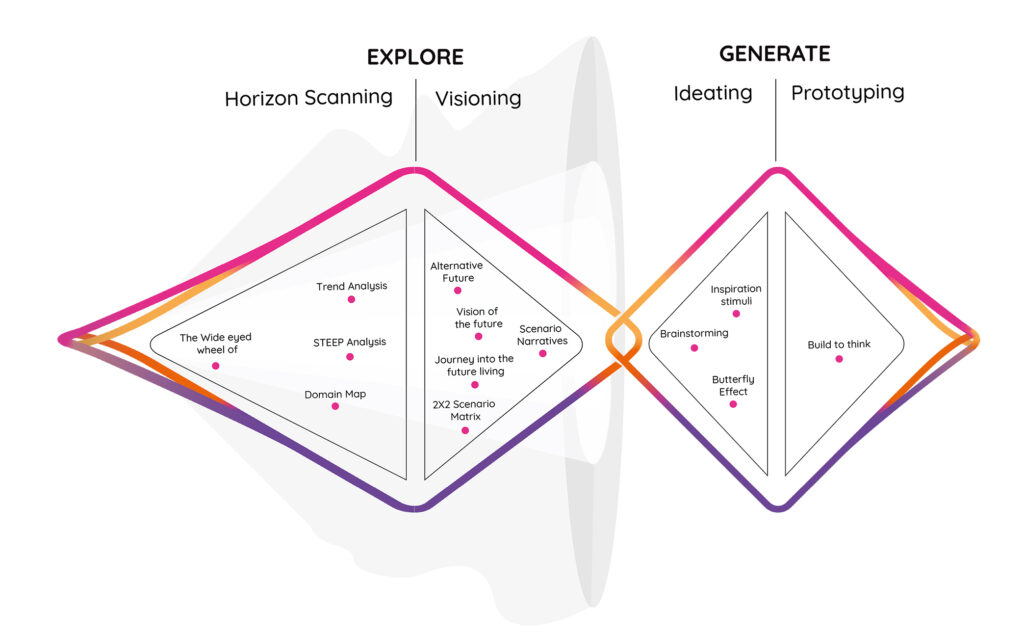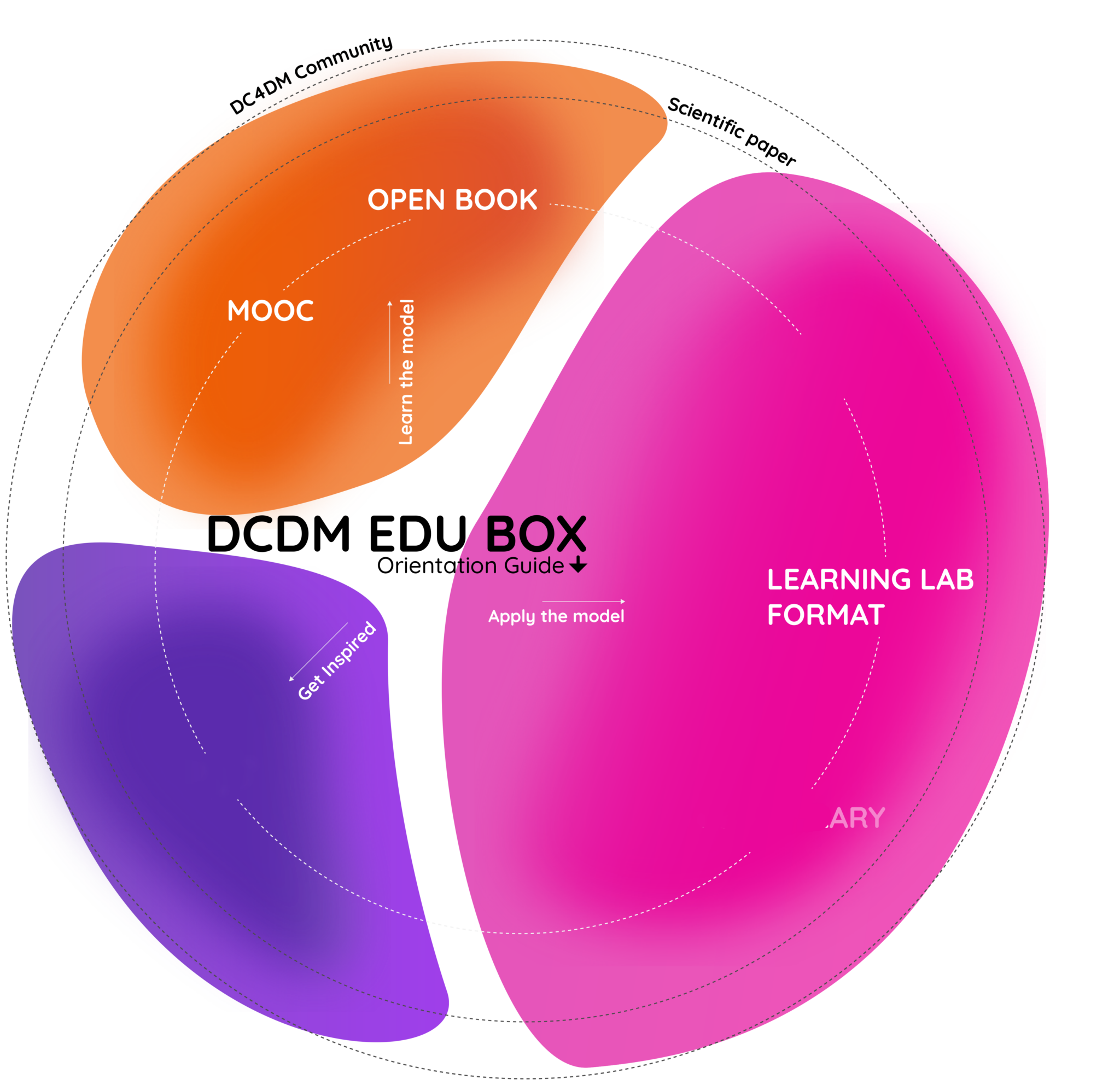Modelli & Strumenti
DC4DM MODEL & TOOLS
The DC4DM project aims to develop a new educational model and a set of tools to support the training of Digital Maturity Enablers, new professional figures able to master responsibly emerging digital technologies.
Digital Maturity Enablers have the ability to drive companies in an ever-changing digital scenario to achieve Digital Maturity, that is a measure of an individual or organisation’s ability to create value through digital solutions, usually a predictor of success for companies launching a digital transformation.
Digital Maturity Enablers possess Digital Creative Abilities (DCAs): Cognitive, Digital, Cross-functional Team, Strategic Vision. Such DCAs would help Digital Maturity Enablers to navigate disruption, make sense of complexity, and deal with uncertainty to envisage the medium and longer-term futures (5-15 years) of social and technology environments (Joern Bühring and Jeanne Liedtka, Embracing systematic futures thinking at the intersection of Strategic Planning, Foresight and Design, 2018).
These DCAs are useful to face the ongoing digital transformation. They include not only a broad range of skills (cognitive, social, emotional, etc.), but also disciplinary and procedural knowledge, attitudes and values that can guide a person to face the complexity of today and tomorrow’s challenges.
To discover more about how to develop the DCAs, download DM Toolkit Guidelines.
To envision new future scenarios reflecting on the possible applications of digital technologies and anticipating the potential implications they might have on the societal, environmental, economic and political levels, the DC4DM model adopts the Design Futures process by integrating Futures Thinking (FT) and Design Thinking methods.
The DC4DM model is based on three sequential phases. The first one, PRE-PROCESS, concerns the training of those knowledge and skills that are propaedeutic for the DM Enabler to go through the whole process; basically, this phase aims to develop the DCAs described above. The second phase, PROCESS, is based on a divergent-convergent Future Design Thinking approach; this phase aims to guide the DM Enabler through the design of new digital solutions with a projection toward future. POST-PROCESS, the third and final phase, consists in supporting the DM Enabler in iterating and continuing to add value to their abilities and/or organisation.
To discover more about the PROCESS structure and proposed methods and tools, read the DM Toolkit Guidelines.
DC4DM EDUBOX
At the end of the project you will be able to navigate the DC4DM EDUbox and other intellectual outputs through the map below. All materials will be open-source so that our DM Community will be able to apply the DC4DM method in their learning context and help us out in improving and evolving, exactly how digital technologies do!




